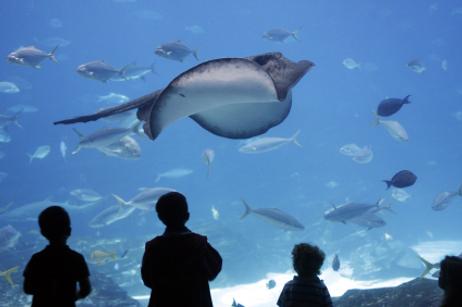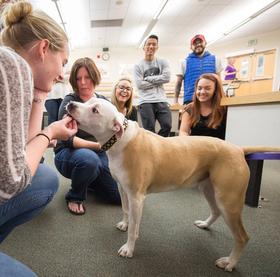If you have a passion for Earth’s underwater worlds, consider starting an exciting career in the field of Aquarium Science at your local community college! Many community colleges in the country have comprehensive programs specifically designed to teach students about the fundamental concepts, skills, and theories needed to effectively work in a professional aquarium or related marine setting.
For example, through the marine and aquatic biology program offered at the Florida Keys Community College, students can pursue careers in “Fisheries Science,” “Aquaculture / Mariculture,” or “Ecology and Conservation.” Through these programs, students explore their surrounding Florida marine habitats. At the same time, both hands-on and formal learning venues provide students with the necessary skills and experience to pursue a professional career in the field.
This video outlines the programs available at The College of the Florida Keys in Key West, Florida.
While The College of the Florida Keys is certainly located in an ideal location for marine-based studies, an array of colleges in other areas also provide students with similar training, utilizing their own local marine science resources and facilities.
Oregon Coast Community College
One of the most notable schools providing students with unique marine-based educational opportunities is Oregon Coast Community College (OCCC), located in Newport, Oregon. At OCCC, students have the opportunity to earn their Associates of Applied Science degree in Aquarium Science by pursuing course requirements in the 2-year degree pathway. Alternatively, students opting for a 1-year program can earn their Aquarium Science certificate, which is specifically available for students who have already completed and earned their Bachelors of Science (or another higher degree in the field of life science).
This video describes the programs available in marine science at Oregon Coast Community College in Newport, Oregon.
Regardless of which program students pursue, both pathways provide lectures, courses, and hands-on internship opportunities to prepare students for a successful career in the field. As OCCC asserts, all students in this subject area must complete a “12 credit hour internship at a facility of their choice which includes both classroom learning as well as a hands-on, real work environment approach to developing aquatic animal husbandry skills.” With such unique courses, graduates will be qualified to work in the “aquatic animal husbandry profession,” which includes potential career opportunities such as:
- Public zoos / aquariums
- Ornamental fish trade
- Aquaculture businesses
- Educational centers/service centers
- State and/or federal natural resource agencies
- Research facilities / institutions
Cape Fear Community College
Expanding on opportunities in marine science, Cape Fear Community College (CFCC), located in Wilmington, North Carolina, offers an extensive Marine Technology curriculum “designed to provide the practical skills and academic background essential for success in the area of marine scientific support.”
By pursuing a degree in the Marine Technology program, students will learn the necessary skills and theories to become proficient as professional scientific support technicians. With unique hands-on learning opportunities, students engage in practical venues on a ship and in the classroom. With diverse coursework requirements, students are exposed to traditional and modern issues, including vocational, technical, and scientific marine education topics. As such, “Students are trained in the use of physical, chemical, meteorological, biological, and geological oceanographic instrumentation and sampling equipment.”
This video shows a boat-building contest at Cape Fear Community College in Wilmington, North Carolina.
Further examining the curriculum, CFCC serves to teach students how to use the most sophisticated and complex marine technology equipment tools, including physical measuring instruments, data acquisition systems, navigation devices, as well as an array of other tools for services on ocean-bound and smaller marine vessels.
Upon completing all CFCC Marine Technology requirements, students will be qualified to pursue employment in various science-based areas. According to CFCC program officials, employment opportunities can extend to include careers in fields such as:
- Environmental monitoring
- Geophysical exploration
- Field and laboratory biology
- Water analysis
- Water and wastewater treatment laboratory analysis
- Nuclear power plant environmental work
- Fishing gear (construction and repair)
- Marine salvage
- Fishing
- Engine service and repair
- Additional marine-based services
Graduates in marine science programs can pursue employment with various public institutions, including state and federal agencies. Graduates may also find employment with private businesses, industries, and research facilities. Indeed, with a marine education from a community college, the professional possibilities are vast – just like our world’s oceans!
Questions? Contact us on Facebook and Instagram. @communitycollegereview
#AquariumScience #MarineBiology #CommunityCollege #OceanCareers #AquaticStudies















